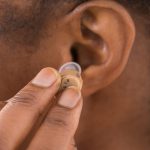As a grade school student growing up in the 1980s, Bethany Blackburn could hardly go a day without hearing something about HIV or AIDS in the news. The schools regularly spread the prevention and education message.
“Now there’s a lost focus on HIV/AIDS – you just don’t hear about it anymore,” said Ms. Blackburn, program manager for infectious diseases at UPMC Presbyterian Shadyside. “And that’s leading to an uptick in newly infected young people in our area; from 2012 to 2013, the number of people ages 18 to 24 seen in our clinic with HIV increased 24 percent.”
 The City of Pittsburgh’s HIV Commission recently welcomed Ms. Blackburn and two UPMC physicians – Amesh Adalja, M.D., a UPMC infectious disease and critical care physician, and Harold Wiesenfeld, M.D., an obstetrician specializing in infectious diseases at Magee-Womens Hospital of UPMC – as its newest members.
The City of Pittsburgh’s HIV Commission recently welcomed Ms. Blackburn and two UPMC physicians – Amesh Adalja, M.D., a UPMC infectious disease and critical care physician, and Harold Wiesenfeld, M.D., an obstetrician specializing in infectious diseases at Magee-Womens Hospital of UPMC – as its newest members.
“These new members have strong influence over and knowledge about HIV services and needs in our region,” said HIV Commission Chair Charles Christen, Dr.P.H., M.Ed., executive director of the Pittsburgh AIDS Task Force. “I’m confident they can help us move the commission forward to fulfill its mission of raising awareness of the needs and gaps around HIV treatment and prevention.”
The 30-member HIV Commission was formed in 2012 through legislation introduced by city Councilman Corey O’Connor with the goal of bringing more people together to raise public awareness of the disease and better coordinate services.
“As an infectious disease physician, I am acutely aware of the necessity to halt the spread of pathogens as quickly as possible by identifying new cases, interrupting transmission and connecting those infected with treatment providers,” said Dr. Adalja, also a senior associate at the UPMC Center for Health Security in Baltimore. “I hope, as a newly appointed member of the city’s HIV Commission, to make meaningful contributions to its important work.”
Dr. Wiesenfeld, who also directs the sexually transmitted disease program at the Allegheny County Health Department, noted that this is the fourth decade of the HIV/AIDS epidemic, and he looks forward to stemming that as a member of the commission.
“I am excited to collaborate with our regional partners to increase awareness and promote effective prevention strategies to reduce the spread of HIV, and to facilitate early intervention and treatment that enable HIV positive individuals to lead long and healthy lives,” he said.
In addition to improving outreach to Pittsburgh’s young people who seem to be missing the HIV/AIDS awareness and prevention message, Ms. Blackburn believes the disease should also be put in a more global context.
“There tends to be a stigma attached to HIV in the United States that it’s a disease that only affects injection drug users and homosexual men,” said Ms. Blackburn, who was a Peace Corps volunteer in West Africa. “Worldwide that’s not the case at all – it touches all demographics of people. Part of the commission’s message should be that HIV/AIDS touches all walks of life.”








